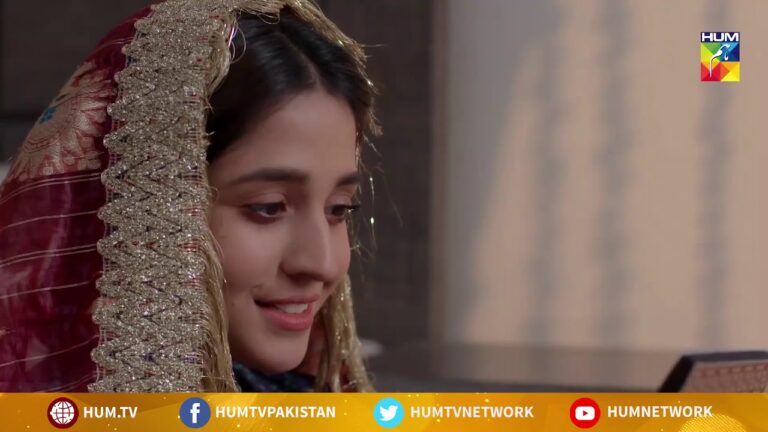Aye Muhabbat Drama Review: Aye Muhabbat (translates to “Oh Love”) is a 2016 Pakistani drama that garnered attention for its exploration of complex emotions, the consequences of past choices, and the power of redemption. Written by the prolific Misbah Nosheen and directed by the meticulous Saife Hassan, the drama unfolds a captivating narrative centered around Mehreen (Maya Ali), a kind-hearted yet naive young woman, and Zaroon (Imran Abbas), a charming businessman harboring a dark secret. This review delves into the strengths and weaknesses of Aye Muhabbat, offering a balanced perspective for potential viewers.
A Story of Lost Love, Second Chances, and the Burden of Secrets
Aye Muhabbat centers around Mehreen, who falls deeply in love with Zaroon. However, their budding relationship is shattered by a misunderstanding and a web of deceit orchestrated by Zaroon’s manipulative brother, Sikandar (Faysal Qureshi). Years later, fate brings Mehreen and Zaroon back together. As they navigate the complexities of their rekindled feelings, past secrets come to light, threatening to destroy their newfound happiness.
The narrative follows the emotional turmoil faced by Mehreen and Zaroon as they grapple with the consequences of past choices, the pain of betrayal, and the uncertainty of a second chance. The drama explores the themes of forgiveness, trust, and the enduring power of love. Aye Muhabbat also sheds light on the destructive nature of jealousy and manipulation, showcasing Sikandar’s ruthless tactics to keep Mehreen and Zaroon apart.
Compelling Performances Breathe Life into the Characters
The success of Aye Muhabbat hinges on the compelling performances delivered by its cast. Maya Ali portrays Mehreen with a captivating blend of innocence, vulnerability, and determination. She effectively captures the character’s journey as she grapples with heartbreak, learns to forgive, and fights for her happiness. Imran Abbas delivers a nuanced performance as Zaroon, showcasing his charm, his internal conflict, and his desire to atone for his past mistakes. Faysal Qureshi portrays the cunning and envious Sikandar with chilling accuracy. The supporting cast, including Ahsan Khan and Sania Shamshad, delivers impactful performances that enrich the narrative tapestry.
Visually Appealing with a Stirring Score
Saife Hassan’s direction lends a visually appealing quality to Aye Muhabbat. The use of color palettes and lighting effectively sets the mood, reflecting the emotional complexities of the characters. Warmer tones dominate scenes depicting moments of joy and shared dreams between Mehreen and Zaroon, while cooler tones are used in scenes involving past betrayals and emotional turmoil. The background score by Sahir Ali Bagga complements the narrative perfectly, adding emotional depth and dramatic tension to each scene.
Exploring the Depths of Love: Deception, Forgiveness, and Redemption
Aye Muhabbat delves into the complexities of love, exploring its ability to both elevate and devastate. The drama showcases the consequences of deception in a relationship, highlighting the importance of honesty and trust. However, it also emphasizes the power of forgiveness and the possibility of redemption for those who are willing to take responsibility for their actions. The narrative explores whether Mehreen can forgive Zaroon’s past transgressions and whether they can rebuild a foundation of trust for a future together.
Beyond Romance: A Look at Family Dynamics and Sibling Rivalry
The drama sheds light on the complexities of family dynamics. The narrative explores the unwavering love and support Mehreen receives from her parents, contrasting it with the manipulative tactics employed by Sikandar. The drama also explores the destructive potential of sibling rivalry, showcasing Sikandar’s envy and his relentless pursuit of destroying his brother’s happiness.
A Flaw in the Narrative: The Melodramatic Turns and Pacing Issues
While Aye Muhabbat boasts a compelling story and exceptional performances, the narrative can veer into melodrama at times. Certain plot developments, particularly those involving emotional confrontations and family feuds, can feel exaggerated. Additionally, the pacing can be uneven, with some sections dragging and others unfolding too quickly.
A Show Worth Watching for its Performances and Exploration of Love
Despite the occasional melodramatic moments and pacing issues, Aye Muhabbat remains a compelling drama. The exceptional performances, the exploration of complex themes of love, forgiveness, and redemption, and the symbolic elements encourage viewers to engage with the narrative on a deeper level. Aye Muhabbat’s lasting impact lies in its ability to spark conversations about trust in relationships, the importance of communication, and the enduring power of love to heal past wounds.
Character Complexity: Beyond the Archetypes
- Mehreen’s Transformation: Mehreen isn’t just a naive victim. The drama depicts her growth throughout the narrative. Initially trusting and forgiving, she learns to be cautious and discerning after the betrayal she experiences. However, she never loses her kind-hearted nature, showcasing the power of resilience and the ability to love again.
- Zaroon’s Internal Conflict: Zaroon isn’t just a charming love interest with a secret. He grapples with guilt and regret for his past mistakes. The drama explores his journey of self-discovery as he strives to earn Mehreen’s forgiveness and become a better man.
- Sikandar’s Twisted Motivations: Sikandar isn’t just a one-dimensional villain. While his actions are clearly malicious, the drama hints at a past that may have fueled his envy and resentment towards Zaroon. This complexity adds depth to his character, though it doesn’t excuse his manipulative behavior.
- Supporting Characters with Agency: The supporting characters in Aye Muhabbat aren’t merely bystanders. Mehreen’s parents offer her unwavering support and guidance. Zaroon’s friend, played by Ahsan Khan, serves as a voice of reason and helps him navigate his internal conflict. These characters add depth to the narrative and showcase the importance of a strong support system.
Symbolism and Narrative Depth
Aye Muhabbat employs subtle symbolism to enhance its storytelling. Mirrors are a recurring motif, reflecting the characters’ self-reflection and the need to confront their past mistakes. Shattered mirrors are used to represent the broken trust between Mehreen and Zaroon, while repaired mirrors symbolize the possibility of rebuilding their relationship. Doors are also symbolic, with closed doors representing the secrets and misunderstandings that keep the characters apart, and open doors signifying the characters’ willingness to be honest and transparent.
Social Commentary: The Price of Deception and the Power of Communication
The drama serves as a social commentary on the dangers of deception and miscommunication in relationships. The narrative emphasizes the importance of honesty and open communication as the foundation for a healthy and trusting relationship. Aye Muhabbat highlights the devastating consequences of keeping secrets and encourages viewers to prioritize open communication with their loved ones.
Love and Redemption: A Second Chance at Happiness
The drama explores the concept of love as a catalyst for redemption. Zaroon’s unwavering love for Mehreen motivates him to seek forgiveness and take responsibility for his past actions. Mehreen’s capacity for love creates a space for Zaroon to prove himself worthy of a second chance. The narrative emphasizes the transformative power of love and the possibility of redemption through self-awareness and genuine remorse.
Beyond the Love Story: Examining Family Dynamics
While the central narrative revolves around Mehreen and Zaroon’s love story, Aye Muhabbat also explores the complexities of family dynamics. The drama portrays the supportive and loving bond between Mehreen and her parents, contrasting it with the destructive path of envy and manipulation chosen by Sikandar. This juxtaposition highlights the importance of healthy family relationships and the negative consequences of sibling rivalry.
A Show Worth Watching for its Performances and Enduring Themes
Despite the occasional melodramatic moments and pacing issues, Aye Muhabbat remains a compelling drama. The exceptional performances, the exploration of complex themes of love, forgiveness, and redemption, the symbolic elements, and the social commentary on communication and trust make it a thought-provoking watch. Aye Muhabbat’s lasting impact lies in its ability to resonate with viewers on an emotional level, encourage introspection, and celebrate the enduring power of love and forgiveness.
In Closing: A Multifaceted Drama with a Timeless Message
Aye Muhabbat is more than just a melodramatic love story; it’s a multifaceted drama with a timeless message. The exceptional performances, the exploration of complex themes, and the symbolic elements invite viewers to engage with the narrative on a deeper level. So, if you’re looking for a Pakistani drama that combines social commentary with emotional resonance, explores the intricacies of love and forgiveness, and delves into the complexities of family dynamics, then Aye Muhabbat is a must-watch.










+ There are no comments
Add yours